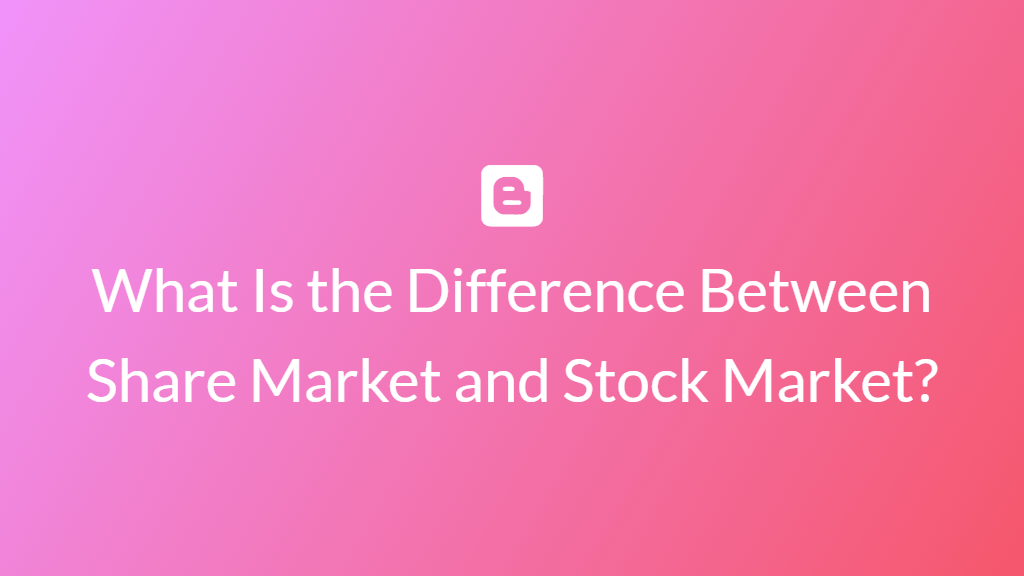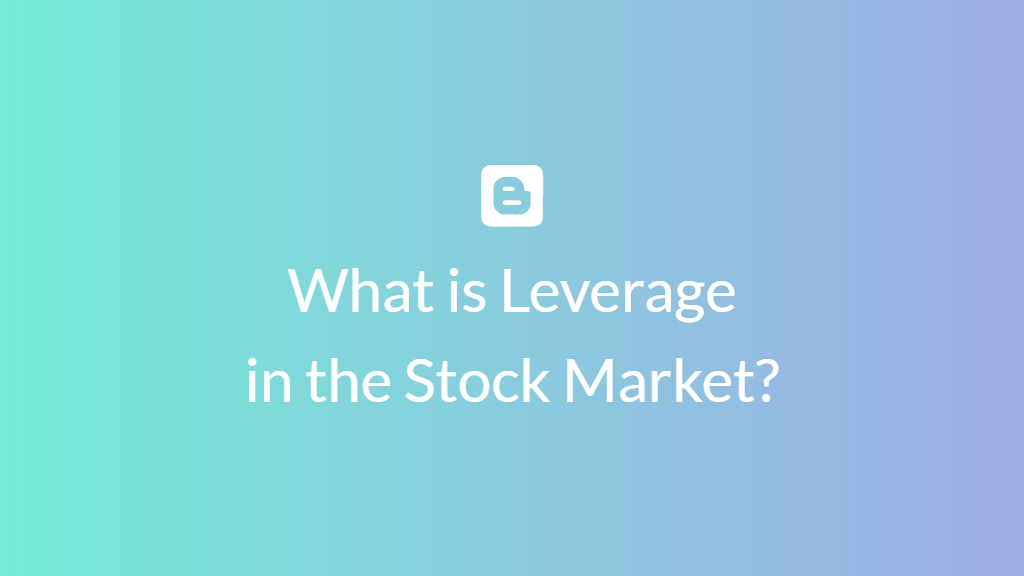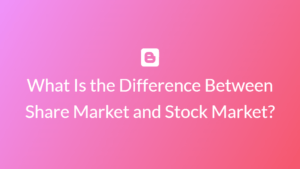What Is the Difference Between Share Market and Stock Market?

Understanding the world of financial markets can be a little overwhelming for newcomers, especially when terms like “share market” and “stock market” are often used interchangeably. However, there are subtle differences between the two that are important to grasp. In this article, we’ll break down what the share market and stock market are, how they operate, and the key distinctions between them.
Introduction
When it comes to investing, the terms “stock market” and “share market” are often used interchangeably. However, many people wonder if there’s a real difference between the two. While both refer to markets where securities (like stocks and shares) are bought and sold, the terminology and scope can differ slightly. In this article, we’ll explore the key differences, similarities, and functions of the stock market and share market. By the end, you’ll have a clearer understanding of both and how they impact your investments.
What Is the Stock Market?
The stock market is a broad term used to describe the collection of markets and exchanges where the buying, selling, and issuance of stocks (securities) take place. It’s a place where investors can purchase shares of publicly traded companies, essentially becoming partial owners of those companies.
Primary and Secondary Stock Markets
The stock market consists of two main segments:
- Primary Market: This is where new stocks are issued through Initial Public Offerings (IPOs). Companies sell shares to the public for the first time to raise capital.
- Secondary Market: After the initial sale, stocks are bought and sold among investors. This is where most trading happens daily, with stocks changing hands on exchanges like the New York Stock Exchange (NYSE) or NASDAQ.
What Is the Share Market?
The share market, on the other hand, refers specifically to the platform where shares (a unit of ownership in a company) are bought and sold. These shares represent equity in a company, giving shareholders a stake in the business.
Shares and Ownership
When you buy shares, you’re buying a small portion of a company. If the company performs well, the value of your shares may increase, and you can sell them for a profit. Conversely, if the company underperforms, the value of your shares may decrease.
The Relationship Between Stock Market and Share Market
So, how are these two related? Essentially, both markets deal with the buying and selling of company ownership, but the term “stock market” is more encompassing, while “share market” is a subset of the stock market. While the stock market refers to all forms of securities being traded, the share market specifically refers to equity or shares in companies.
In practical terms, however, the difference is quite subtle, and these terms are often used interchangeably in everyday conversation.
Key Differences Between Share Market and Stock Market
Now that we’ve covered the basics, let’s dig into the key differences:
Definition and Scope
- Stock Market: Refers to the entire market for trading securities, including stocks, bonds, and other financial instruments.
- Share Market: Refers specifically to the market for trading company shares or equity.
Terminology
- Stock Market: Broadly encompasses a variety of financial assets, including bonds, futures, and ETFs.
- Share Market: Only refers to the buying and selling of company shares (equity).
Functionality
- Stock Market: Provides a space for trading a wide range of securities.
- Share Market: Focuses solely on equity and company ownership.
Participants and Investors
- Stock Market: Involves a broader range of participants, including traders of various securities.
- Share Market: Primarily involves those interested in buying or selling company shares.
How Stock Market Works
The stock market works through exchanges, such as the NYSE or NASDAQ. Companies list their shares on these exchanges, and investors buy and sell shares through brokers or trading platforms. The prices of stocks are determined by supply and demand, with market makers facilitating trades to ensure liquidity.
How Share Market Works
Shares are typically traded on specific stock exchanges. The price of a share is influenced by a company’s performance, market trends, and economic factors. Investors can buy shares during an IPO or on the secondary market, where they can hold, sell, or trade their shares as they wish.
Stock vs Share: Which Is More Commonly Used?
In some regions, the term “stock market” is more common, while in others, “share market” takes precedence. For example, in the U.S., “stock market” is widely used, whereas in India, the term “share market” is more frequently heard. However, both terms essentially refer to the same concept: the marketplace for trading company ownership.
Importance of the Stock Market
The stock market plays a crucial role in the economy. It allows companies to raise capital, provides liquidity for investors, and offers an avenue for wealth creation. It also serves as an indicator of the overall health of an economy.
Importance of the Share Market
The share market is integral to the financial system. By providing a place for companies to issue shares, it facilitates the flow of capital. Investors benefit from the potential growth of their investments, and companies gain access to the funds needed to expand and innovate.
Examples of Stock Markets
Some of the most well-known stock markets around the world include:
- New York Stock Exchange (NYSE) – Located in the U.S.
- NASDAQ – Also based in the U.S.
- London Stock Exchange (LSE) – Based in the UK.
- Tokyo Stock Exchange (TSE) – Located in Japan.
Examples of Share Markets
While “share market” is often used as a more general term for stock exchanges, individual countries have their own specific exchanges where shares are traded:
- Bombay Stock Exchange (BSE) – India.
- National Stock Exchange (NSE) – India.
- Australian Securities Exchange (ASX) – Australia.
Stock Market vs Share Market: Which Should You Invest In?
As an investor, whether you focus on the stock market or share market doesn’t really matter. The key is understanding that both involve the buying and selling of equity in companies, and which one you choose will depend on your investment strategy and the market you’re operating in.
Common Misconceptions
One of the most common misconceptions is that the stock market and share market are completely separate entities. In reality, the difference lies primarily in terminology, and they are often used interchangeably.
Conclusion
While the stock market and share market may seem like two different concepts, they are closely related. The stock market encompasses a broader range of securities, while the share market specifically refers to the buying and selling of company shares. Understanding these nuances can help investors navigate the world of finance more effectively.
FAQs
1. Is there any difference between shares and stocks?
Yes, shares refer specifically to ownership in a company, while stocks can refer to a broader range of securities, including shares.
2. Can I invest in both the stock market and the share market?
Yes, both markets are interconnected, and investors often engage in both.
3. What is an IPO?
An IPO (Initial Public Offering) is when a company offers shares to the public for the first time to raise capital.
4. Can I buy shares of any company on the share market?
You can buy shares of any company listed on the relevant stock exchange.
5. How do I get started with investing in stocks or shares?
Start by opening an account with a broker and researching companies you’re interested in. You can invest in stocks or shares through various online platforms.















Post Comment